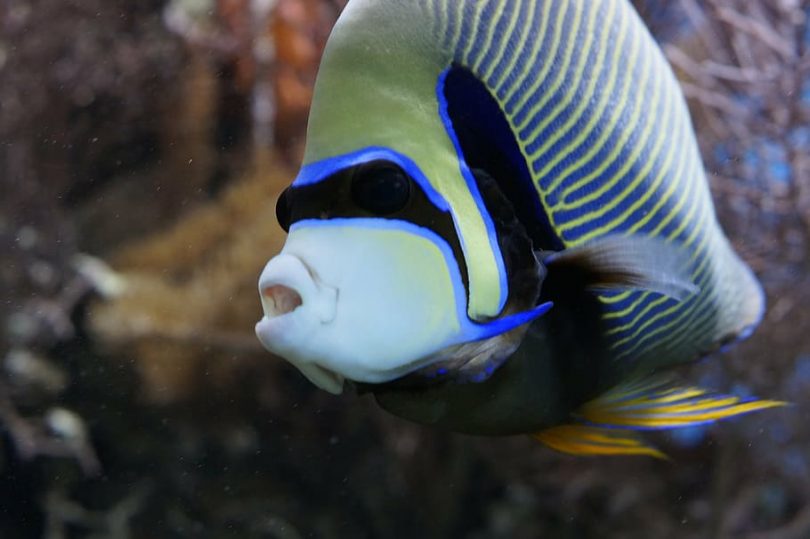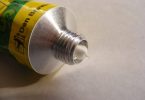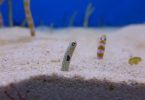Table of Contents
If you are trying to find the answer to the question ‘why is my angelfish fat and bloated? Well, we’ve got you covered.
Angelfish are probably one of the most beautiful and elegant fish species one could ever have. Their bodies are long and slender, and their feathers certainly add to the decorative style.
However, more than once, they worried me. That’s when I noticed that they had become fat and were bloated. To solve that problem, I began researching all possible causes of the odd phenomenon.
Typically, angelfish can become fat and bloated as they carry eggs. It occurs in female angelfish and is accompanied by a gravid spot.
As we move forward, I’ll show you how to fix this problem and prevent it from happening again.
Before checking whether your female angelfish is fat or bloated, you will need to differentiate between male and female angelfish.
It is not very difficult to distinguish a male angelfish from a female angelfish. One of the most common ways to get to know a male Angelfish is through his aggression.
Male angelfish are generally territorial and also more aggressive than females, they are known to be aggressive towards each other, especially when it is confined to space and territory, etc.
Male angelfish have pointed papillae while female angelfish have flattened papillae.
You can also determine which angelfish is male or female after spawning. From this you know that the female is the one who lays the egg while the male fertilizes it.
Male angelfish usually have a hump just above the nose. This hump is called Nuchal hump. The females don’t have this hump.
You can also tell by looking at a tube located between the anal fins and the ventral fins. This tube appears during the spawning period.
In male angelfish, this tube is thicker than in females. By checking all these factors, you can tell what sex your Angelfish is.
These factors alone, cannot give an absolutely accurate answer. But together, they can provide real results whether your angelfish is male or female. Make sure your check is very thorough.
Why is my angelfish is fat and bloated?
Is Your Angelfish fat or bloated? Should you worry about that too. Well, it depends on the symptoms. That is what bloating is. It is a symptom, not a disease, and it is one of many.
This means paying close attention to the habits of your angelfish. Even though he cannot speak, the creature’s physical behavior will reveal the exact nature of its illness.
Some common causes of bloating include:
-
Pregnancy and Eggs
Angelfish are not livebearers. They lay eggs which the male fish eventually fertilizes. A female angelfish does not require a male angelfish to breed and eventually lay eggs. To confirm that your beloved pet is healthy, you should observe his behavior for some time.
If you suspect a “pregnancy” and there are no obvious signs of distress, you should soon see a few eggs around the nesting spot.
And, apparently, your female angelfish should return to her normal slim shape as well. But remember, female angelfish can lay (however, fertilize) eggs even if there are no males around.
-
Constipation
Constipation can become a more serious condition than it seems. In fact, it can soon develop into a fatal outcome if it is not detected and treated in time. Angelfish that are eating too much will soon be unable to digest their food and become fat.
Sadly, this is often quite difficult to confirm as even the most obvious signal is the most complex to monitor. In fact, to be sure that your fish is constipated, you should see if it is able to digest and defecate the food.
However, even if you may not notice it because of a busy schedule or because of the many fish swimming around, you can observe some other behavior changes and treat your pet with some beneficial preventive measures. A constipated fish will probably abstain from food for some time, or at least eat much less than usual.
Peas are a super-simple yet highly effective treatment for constipation. Simply boil some and then peel them later and give them to your bloated pet. Peas are an amazing source of fiber and they basically act as a kind of laxative.
They are very beneficial for their digestive system, so you can introduce them to your pet from time to time if this arises.
-
Feeding Issues
If you give your fish too much food, it will slowly swell. Constipation can also be caused by overeating. Some angelfish have a weak digestive system. This means they can get constipated even with a proper diet. Some people dismiss constipation and overeating as mild discomfort, but they are dangerous for fish.
-
Tumor
Unfortunately, fish can develop tumors in their lifetime, just as humans can. And if this type of unwanted tumor starts growing inside their intestine or nearby organs, affected fish can appear extremely swollen and bloated.
Tumor in fish isn’t just fat. The body of the creature is usually uneven. Tumors look frightening, but they are not always cancerous. While they will still cause discomfort to your fish, in some cases, they are benign.
However, they make your fish vulnerable to dangers. If you have aggressive tank mates in your aquarium, they can quickly attack your sick angelfish.
Depending on the exact location, size of the tumor, and its progression, your fish may show more or less visible signs of distress. In some cases, it may refuse to eat, in others it may become lethargic or cling to the bottom of the tank.
Fish that are in pain may start swimming the wrong way, while others can suddenly become extremely aggressive. Whatever the situation, you will surely soon start seeing some obvious symptoms of the disease.
If your angelfish pet is suffering from tumor you should definitely consult your vet. In most cases, sadly, there is no cure, but sometimes fish can live successfully with that tumor.
-
Poor Care
African Cichlids are susceptible to inflammation as a result of poor care. This usually involves a poor diet and an unclean tank.
Dirt can easily damage the angelfish’s digestive system, leading to constipation in the long term.
-
Disease
If your angelfish are thicker than you remember, they could be sick. Some common diseases that can cause inflammation include:
-
Dropsy
This disease usually develops either due to poor water quality or as a result of bacterial infection, when fish are absorbing too much water in their organism. Whatever the reason, you must react very quickly in such cases or your fish may soon die.
Recognizing dropsy is very easy. Affected fish develop highly bloated vines, to the point where their scales begin to protrude, much like spikes. In addition, another distinctive sign is characterized by bulging eyes.
If your fish is suffering from dropsy, the very first step is to isolate it in a quarantine tank to prevent other fish from getting sick.
After this, you should medicate your angelfish with antibiotics for a short period of time, and make sure the water in its tank is clean.
-
Bacterial and Viral infections
Your fish can bloat as a result of Gram-negative bacteria. Some of the symptoms that accompany this type of bacterial infection include bulging eyes, red gills and raised scales.
Bloating caused by a viral or protozoan infection complicates matters as it is challenging to diagnose. This type of infection (such as DGIV) is accompanied by symptoms such as itching, red patches and a curved spine.
-
Hexamita
As the name suggests, this disease makes a hole in the head of your fish, it can also cause bloating. Hexamita is a more complex disease.
It is not easy to diagnose, because in many cases, it does not reveal any additional symptoms other than bloating.
It would be better if you keep an eye on the parasites. They are usually introduced into the tank through new fish and can only be treated if caught in time. Parasites such as hook-worms will cause your angel’s stomach to swell.
How to Treat Bloated or fat Angelfish?
Once you have identified the cause, you can apply some basic treatment options, including:
1. Improve the Conditions of Your Tank
Your first course of action should be to improve the conditions in your angelfish tank. That means keeping the temperature between 74 and 78 degrees Fahrenheit and the pH between 6.5 and 6.9. Angelfish prefer slightly acidic water. You can change the water using a pH regulator.
You should also install a heater. This will enable you to accurately manipulate the temperature. Don’t forget to invest in a suitable filtration system that can keep the water sufficiently clean. In case you didn’t know, angelfish prefer low water flow.
That’s why you should avoid high flow filtration systems. They will induce unnecessary stress. In this article, I’ve gone step-by-step on how to care for your bloated or fat angelfish. That is, from choosing the right one to growing it healthy.
2. Ensure High Water Quality
I encourage you to do 50 percent water changes at least weekly. It is mostly encouraged in bloating conditions. A water change will eliminate any foreign bodies that may be impairing your angel’s physical health.
The water change will also strengthen your angel’s immune system by eliminating toxins such as ammonia. It would be best if you also consider using a de-chlorinator and aquarium salt.
3. Relieve Stress
Stress is bad for fish, especially bloated fish that are struggling to fight off infection. If you want to help your angelfish recover, eliminate the sources of stress.
If you have a community tank and your fish is still under stress, move it to a different tank. You can also use aquarium dividers, which separate sections of your tank either vertically or horizontally. Either way, make sure your bloated isn’t exposed to attacks.
4. Take Care of the Eggs
Try adding a piece of ceramic or plastic to the tank. This will encourage your angelfish to lay eggs (if this is the case), solving the swelling all at once.
Egg-bound angelfish are a concern because this condition will eventually make them sick. You certainly don’t have much in the way of an effective solution to a problem like this.
Some people have success with Epsom salt (1 teaspoon for every 10 gallons). If you suspect that your angelfish are egg-bound, consult a veterinarian.
5. Feed Your Angelfish Properly
You are encouraged to maintain a varied diet that includes black worms, guppy fry and shredded earthworms, to mention but a few. The healthier the diet, the easier it will be to avoid constipation altogether.
6. Disease Treatment
To relieve the bloating caused by a disease, you must treat that disease. For example, the best way to fight Gram-negative bacteria is to use doxycycline.
Salt dips can cure protozoan infections. Place the angelfish in a salt bath for thirty minutes before returning it to its original tank.
If the disease is allowed to progress to the point where the fish has swelled, there is no effective means of treating it because too much damage has been done to the kidneys.
Some treatment options you can try include antibiotics, high-quality food, and aquarium salt (1 teaspoon of salt per gallon of water in a tank). He should be quarantined before being treated. The same is true for fish with viral and bacterial infections.
How to differentiate between sick, pregnant or fat angelfish?
If you have had some experience with angelfish, you know that pregnant angelfish are not difficult to identify.
Once you know what to look for in pregnant angelfish, you will know how to distinguish them from sick or fat:
- First, because angelfish lay eggs, once they become pregnant, their stomachs swell. In 20 to 40 days, a pregnant angel’s belly will become swollen and round. This alone does not mean that the fish is pregnant. It would help if you also find a patch of color (black or red) under the belly. This is called the gravid spot. When the fish is pregnant it becomes brighter or darker.
- If you’re still not sure whether your angelfish is pregnant or not, look for nesting spots. Angelfish that are looking to breed will spend a lot of time cleaning up their breeding grounds.
- If your angelfis are males and they are bloated, don’t blame pregnancy. They are probably sick. Male angelfish have a pointed papilla instead of the flattened version found in female angelfish.
If the above conditions apply to your angelfish, there is a high chance that she is pregnant and not sick. This means you don’t have to worry about its bloated appearance.
How to prevent bloating in Angelfish?
To prevent bloating in your angelfish, follow these guide:
- Make sure your pet is getting the correct water parameters during their life in captivity and stabilize them once they reach ideal values. And, just as important, their water must be clean.
- Feed your fish suitable high quality commercial food and healthy snacks and try to avoid overfeeding.
- Compatibility is another thing to look out for, keep your angel fish with other compatible fishes.
- And lastly, always observe your pet and look for signs of distress or diseases.
Conclusion
However, if your angelfish also appears lethargic (or if the problem occurs in male angelfish), you should have it fixed.
Your first step should be cleaning the tank, making sure that debris and leftovers are kept away. These can easily constipate your fish.
If you suspect that this condition is caused by some disease, your best option would be to consult a specialist.
Look for a nearby vet and get a professional’s opinion. If you prefer to take things into your own hands, you can try antibiotics such as doxycycline or aquarium salt.
Monitoring your pet is extremely important and can often mean the difference between life and death. There you have it, all you need to know about bloated or fat angelfish.







